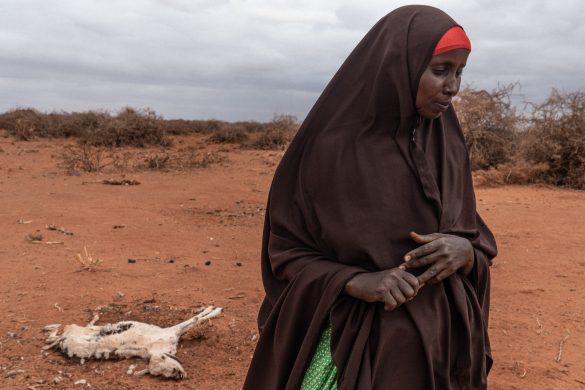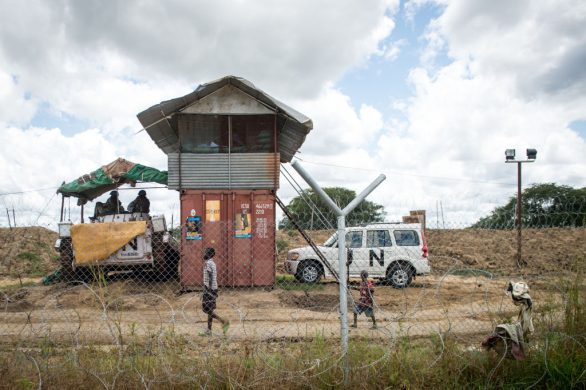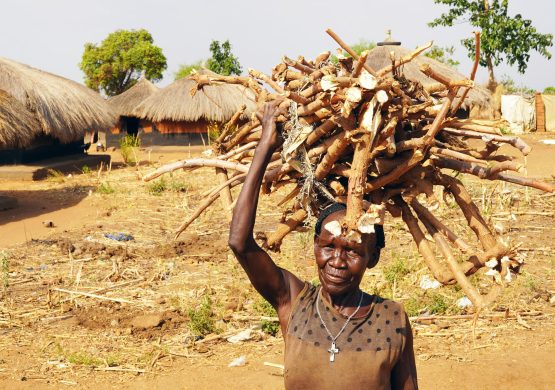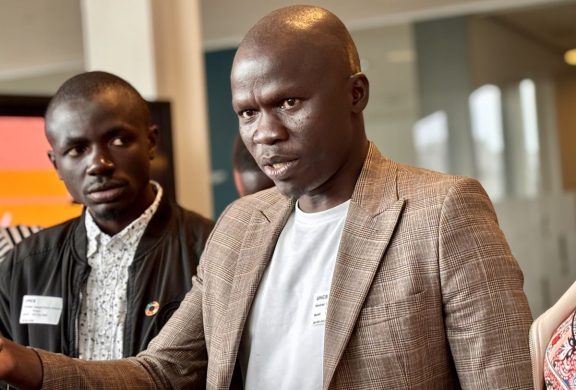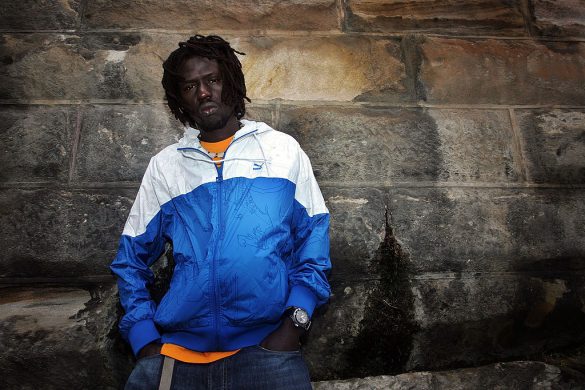LONDON, 11 March, 2016 (Amnesty International): South Sudanese government forces deliberately suffocated more than 60 men and boys who were detained in a shipping container before dumping their bodies in an open field in Leer town, Unity State, according to new evidence gathered by Amnesty International.
The organization’s researchers recently visited the grounds of the Comboni Catholic Church where the October 2015 killings took place. They also visited the site, about one kilometer from Leer town, where the bodies were dumped.
They found the remains of many broken skeletons still strewn across the ground.The findings are contained in a new briefing South Sudan: ‘Their Voices Stopped’: Mass Killing in a Shipping Container in Leer.
Krigsforbrydelser
“The arbitrary arrest, torture, and mass killing of these detainees is just one illustration of the South Sudanese government’s absolute disregard for the laws of war. Unlawful confinement, torture, willfully causing great suffering, and willfully killing are all war crimes,” said Lama Fakih, Senior Crisis Advisor at Amnesty International.
The researchers interviewed more than 42 witnesses, including 23 people who said they saw the men and boys being forced into a shipping container and later saw their dead bodies either being removed or at a mass burial site.
According to witnesses, between 20 and 23 October 2015, government soldiers arbitrarily arrested dozens of men and boys in Luale village and Leer town. They then forced them, with their hands tied behind their backs, into one or more shipping containers located at the Comboni Catholic Church.
Vidner hørte skrig og gråd fra containeren
Witnesses described hearing the detainees crying and screaming in distress and banging on the walls of the shipping container, which they said had no windows or other form of ventilation. They said that civilian and military officials had direct knowledge that the detainees were in distress and dying but did nothing to help them.
For example, one witness said that she saw the then area commander order soldiers to open the container and remove the bodies of four dead men and then close the container again on the remaining detainees who were still alive inside.
By the following morning, all but one of the remaining detainees had died. One witness told Amnesty International researchers:
“We could see the people inside and they were not alive….what we saw was tragic…the container was full of people. They had fallen over one another and on to the floor. There were so many people.”
Following their death, government soldiers loaded dozens of bodies into a truck and dumped them in two open pits in Kulier, Juong payam, approximately 1km northeast of Leer town. Family members who visited the area in the following days said the bodies, left in the open, had been eaten by animals and had started to decompose.
Despite evidence of war crimes no steps have been taken to hold perpetrators to account or to provide reparations, including compensation to relatives of the deceased for the loss of their loved ones.
“Dozens of people suffered a slow and agonizing death at the hands of government forces that should have been protecting them. These unlawful killings must be investigated and all those responsible brought to justice in fair trials without recourse to the death penalty,” said Lama Fakih
“In order for effective prosecutions to take place, the African Union Commission should immediately take steps to set up the hybrid criminal court provided for in the August 2015 peace agreement, and ensure that it immediately opens investigations into crimes under international law, including into this atrocity.”
Baggrund
In August 2015, after more than 20 months of intermittent negotiations, South Sudan’s warring parties finally agreed to the terms of a peace agreement. The agreement provided a framework for parties to end hostilities and addressed a wide range of issues including: power sharing, security arrangements, humanitarian assistance, economic arrangements, justice and reconciliation and for a process to develop a permanent constitution.
Despite the peace agreement and commitments by parties to the conflict to a permanent ceasefire, fighting continued in Unity state through mid-December 2015. The power-sharing government has not yet been formed.
The August 2015 peace agreement provides for the establishment of a Hybrid Court for South Sudan (HCSS) by the African Union Commission, with the mandate to investigate and prosecute genocide, war crimes and crimes against humanity committed during the conflict. This court has not yet been established.
The killing of approximately 60 men and boys in a shipping container in Leer was first revealed by the Ceasefire and Transitional Security Arrangements Monitoring Mechanism (CTSAMM), the body responsible for reporting on the implementation of the permanent ceasefire. The CTSAMM report recommended “that some sort of commission of enquiry is established to fully investigate the incident.”
At the time killings took place, the Comboni Catholic Church compound had been taken over by government forces.
Relatives of the dead told Amnesty International that the victims were cattle keepers, traders and students, not fighters.
Download rapporten Their Voices Stopped’: Mass Killing in a Shipping Container in Leer (PDF, 28 sider)



